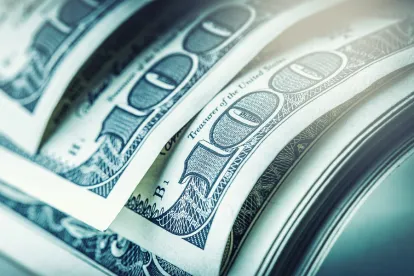The Supreme Court of the United States granted the US Patent and Trademark Office (PTO) Director Iancu’s petition for a writ of certiorari to determine whether a party that files an appeal in the Eastern District of Virginia (E.D. Va.) from an adverse PTO decision under 35 USC § 145 must pay the PTO’s “personnel expenses,” win or lose. Iancu v. NantKwest, Inc., Case No. 18-801 (Mar. 4, 2019). The question presented is:
Whether the phrase “[a]ll the expenses of the proceedings” in 35 U.S.C. 145 encompasses the personnel expenses the [PTO] incurs when its employees, including attorneys, defend the agency in Section 145 litigation.
As background, the Patent Act gives applicants two options for judicial review of an adverse PTO decision. The applicant may appeal directly to the US Court of Appeals for the Federal Circuit under 35 USC § 141, and “[the court] shall review the decision from which an appeal is taken on the record before the [PTO],” 35 USC § 144. Alternatively, the applicant may file a civil action against the director of the PTO in the E.D. Va. under 35 USC § 145, where the applicant may present additional evidence. If the applicant elects to bring such an action, § 145 provides that “[a]ll the expenses of the proceedings shall be paid by the applicant.”
The en banc Federal Circuit reversed a divided Federal Circuit panel decision and held that 35 USC § 145 does not require applicants appealing to the E.D. Va. to pay the PTO’s attorneys’ fees in the form of a pro rata share of the PTO personnel’s salaries (i.e., “personnel expenses”). NantKwest, Inc. v. Iancu, Case No. 16-1794 (Fed. Cir. July 27, 2018) (en banc) (Stoll, J, joined by Newman, Lourie, Moore, O’Malley, Wallach and Taranto, JJ) (Prost, CJ, dissenting, joined by Dyk, Reyna and Hughes, JJ) (IP Update, Vol. 21, No. 8).
In its en banc decision, the Federal Circuit found that “the American Rule prohibits courts from shifting attorneys’ fees from one party to another absent a ‘specific and explicit’ directive from Congress.” The Court held that the phrase “‘[a]ll the expenses of the proceedings’ falls short of this stringent standard.”
However, in a case interpreting a similar provision of the Lanham Act, 15 USC § 1071(b) (3) (relating to appeals to the E.D. Va. from a Trademark Trial and Appeal Board decision denying a trademark application), the US Court of Appeals for the Fourth Circuit held that § 1071(b) (3) does requirea trademark applicant to pay the pro rata share of the PTO’s personnel expenses in defending the trademark action, win or lose. Shammas v. Focarino, 784 F.3d 219 (4th Cir. 2015). Thus, there is a circuit split regarding the meaning of similar phrases in two different, albeit similar, statutes.
Practice Note: The Fourth Circuit recently relied on Shammas to uphold an award of attorneys’ fees to the PTO (under § 1071(b) (3)). Both the district court and the Fourth Circuit found in favor of the applicant in an appeal from an adverse decision at the Trademark Trial and Appeal Board: Booking.com, v. Iancu, Case Nos. 17-2458, -2459 (4th Cir. Feb. 4, 2019) (IP Update, current issue). Earlier this month, in Rimini Street v. Oracle, Case No. 1625 (US Mar. 4, 2001), the Supreme Court, in denying a prevailing party in a copyright action litigation expenses such as expert witnesses, e-discovery and jury consulting, held that the term “full costs” in 17 USC § 505 of the Copyright Act has no special, expansive meaning, but rather is limited to the costs specified in the general costs statute codified at 28 USC §§ 1821 and 1920.



 />i
/>i

